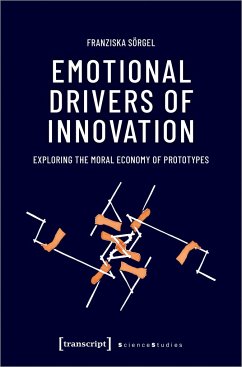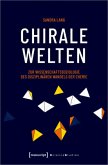Innovation is ubiquitous and has become a universal term that is indispensable to describe interventions, projects, or products. Franziska Sörgel argues that emotions influence innovations as they are inherent in initial ideas, expectations and habitual evaluation criteria that impact the development process. Instead of assuming that the innovation process is subject to rational and linear creativity, the study adopts the notion of 'moral economies' by Lorraine Daston as a space for negotiation. Such an approach enables decision-makers to question the evaluation criteria and patterns for technological developments before implementing them in society.
Bitte wählen Sie Ihr Anliegen aus.
Rechnungen
Retourenschein anfordern
Bestellstatus
Storno








